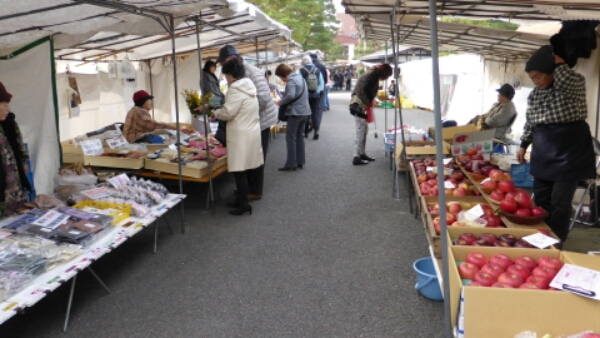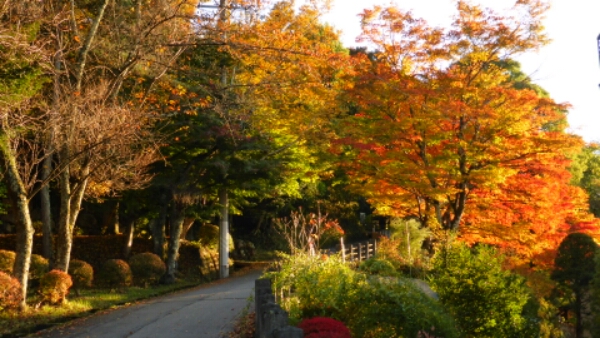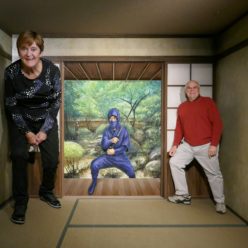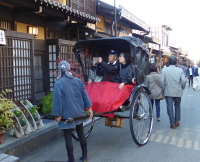A Taste Of The Country Side ….
We left Tokyo at 8.33am precisely on the Shinkansan (bullet train) bound for Nagoya. It was a pleasant 100 minute trip in first class, so nice and relaxing after a busy week in Tokyo. We were again very lucky to see a brilliant clear view of Mt Fuji along the way, then on arrival in Nagoya transferred trains to the Hida Limited Express on our way to Takayama. This was one of the best train trips we have ever done. The scenery was out of this world and as we followed the Hida River, there were photo shots to be taken at every turn. It was the middle of autumn and the leaves on the trees were becoming more colourful the closer we got to Takayama. Light green, to yellow, burnt orange and reds dominated the mountain sides and even beside the train track along the way. We passed through villages and towns and you never tired of the changing scenery. Unfortunately, 100 minutes later we arrived at our destination and took a taxi to our Ryokan, a traditional Japanese inn, for our three night stay.
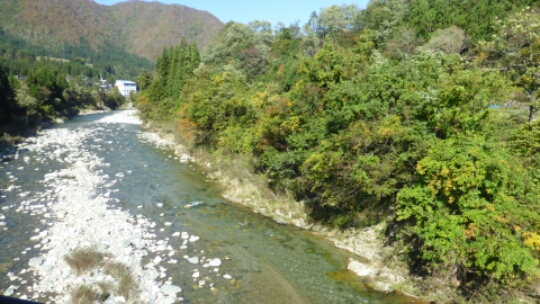
A Traditional Japanese Inn ….
To fully immerse ourselves in the Japanese culture we decided to book a Ryokan, a traditional Japanese Inn. We were shown to our room overlooking Takayama and an elderly lady welcomed us and we knelt down and had green tea with her before she left our room. We had a traditional room with tatami mat floor, a cedar timber bath tub in a traditional Japanese bathroom, a separate toilet with all the fancy gadgets, but to our surprise not a bed in sight. After settling in to our room we went exploring the town, more on that later, but when we returned to our room we were presented with cosy futons, traditional Japanese bedding, which was set up for you each night on the floor. It was so cosy and not too hard sleeping on the floor either. In the mornings, we went down to a traditional Japanese breakfast sitting crossed legged on cushions on the floor and were served a mixture of Japanese food. Each morning we experienced a different Japanese breakfast and on the last morning it was western style for a change. Our first day was getting our bearings and our hotel was just a short 5 minutes walk into town. Only problem was we were high on a hill overlooking Takayama and the walk back was challenging. Definitely good exercise when you have to walk up the hill everyday.
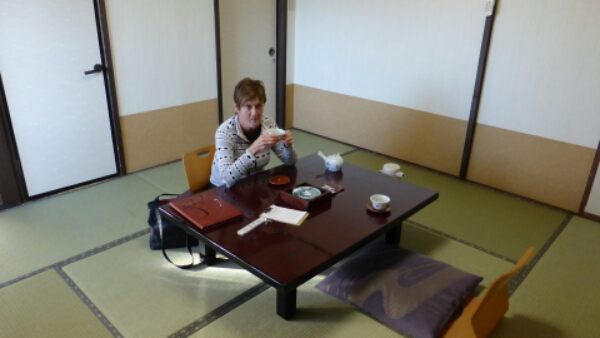
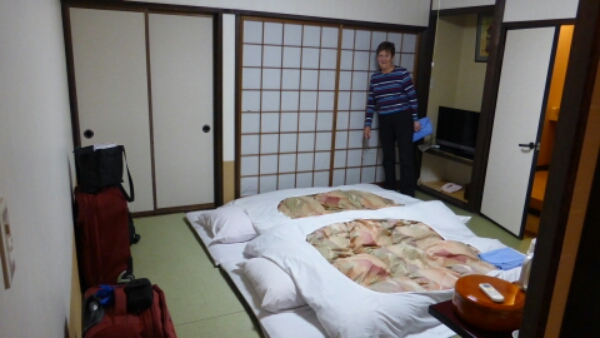
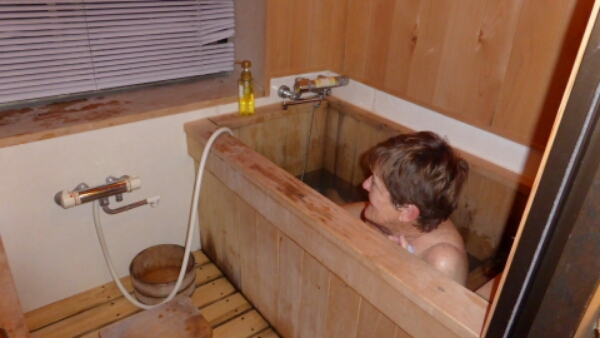
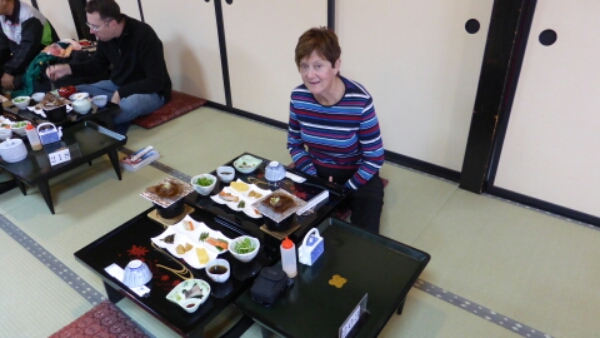
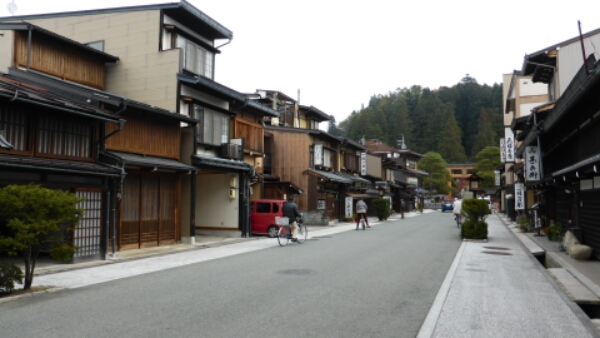
World Heritage, Deservedly ….
The next day we took a day tour of a World Heritage area 1 1/2 hours from Takayama with the first stop being Ainokura which is located in a mountainous region. It is home to some 80 residents who live in the village and are working very hard to preserve these important cultural properties. Ainokura has 20 gassho style houses most of them are 100 to 200 years old and the oldest is said to have been built some 400 years ago. The gassho roof has a slope of about 60 degrees forming a nearly equilateral triangle. This steep pitch allows snow to slide off the roof easily and the main roof is supported by stout oak beams which are curved at the base. These beams are made from trees that grow on the mountain sides and develop the curve naturally. No nails are used in the roof frame and it is lashed together with straw rope and crystal hazel boughs called ” neso”. The ropes are said to help preserve the houses for a long time since they accumulate soot from the smoke of the hearth and become as hard as steel, develop an insect repellent as well as preservation effects. The roofs are rethatched every 15 to 20 years. We wandered around this small village and visited the local museum.
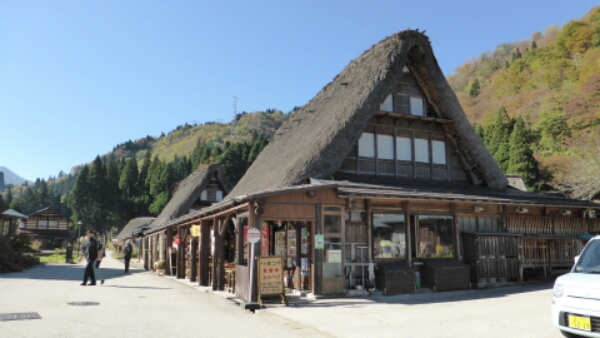
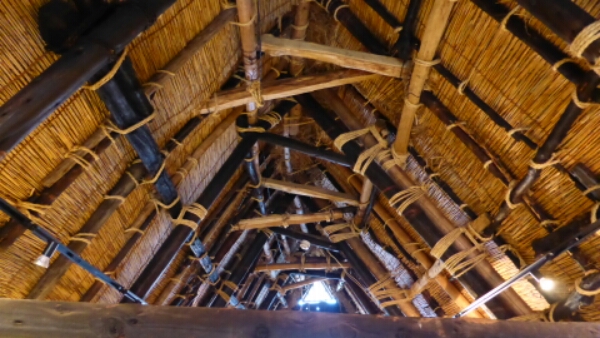
Traditional Japanese Lunch Included ….
From Ainokura we travelled onto Shirakawago following the river and crossing a large number of bridges along the way. From a hillside lookout overlooking Shirakawago we had lunch which was traditional japanese style. We then spent 2 hours walking around the village of gassho style houses some of which were open for a small fee. Many of the gassho houses in Shirakawago have been relocated from different areas. Both of these villages were cut off from the rest of the world for a long period of time and they lived in these gassho style houses and subsisted on the cultivation of mulberry trees and the rearing of silkworms.. These houses are the only examples of their kind in Japan. We managed to see one of the houses being rethatched which was an labour involved process. We really enjoyed our day and would recommend it.
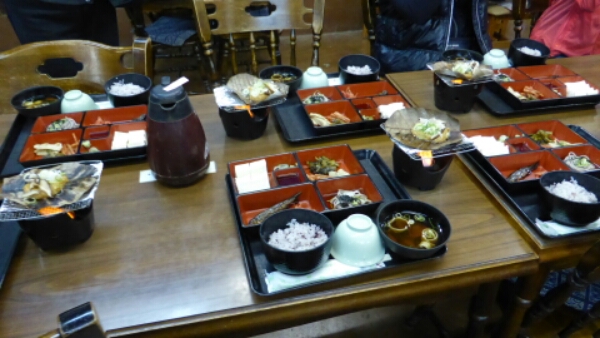
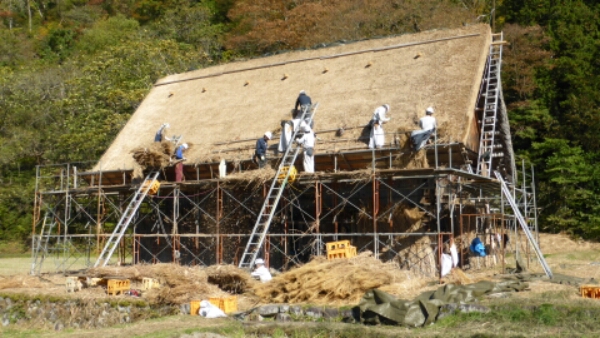
Beautiful Takayama ….
Our next day in Takayama, a city in the mountainous Hida region, has a beautifully preserved old town with many sightseeing places to view. We spent the day wondering around the historical parts of this town. There are a number of walks that you can do on your own or with an English guide if needed. Tayayama has two festivals each year held in spring and autumn. We just missed the autumn festival but visited the Float museum where about a dozen festival floats are displayed. By chance we came across a parade of international peace supporters who had gathered in Takayama to spread love and friendship with other members from different countries. We had no idea what we were involved with but included ourselves in the welcoming ceremony, and parade.
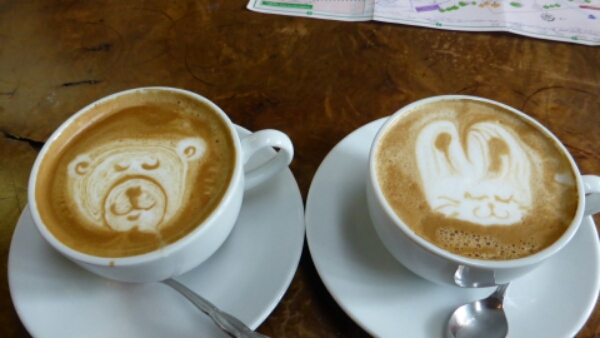
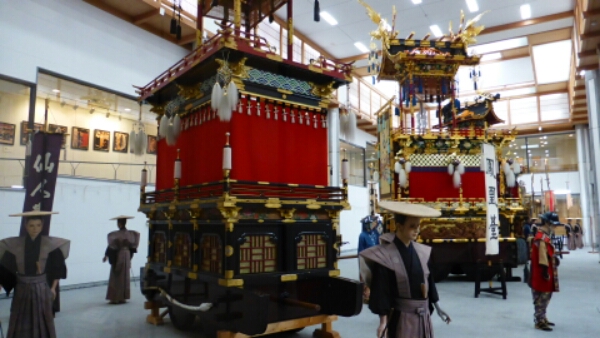
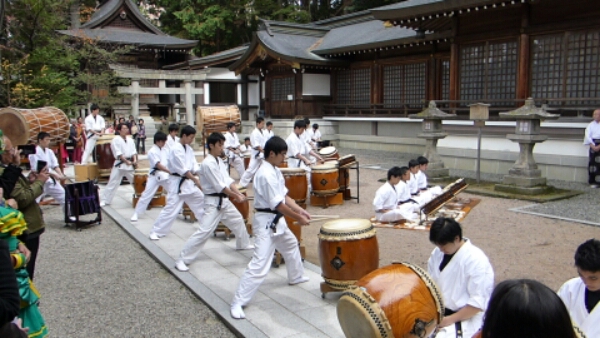
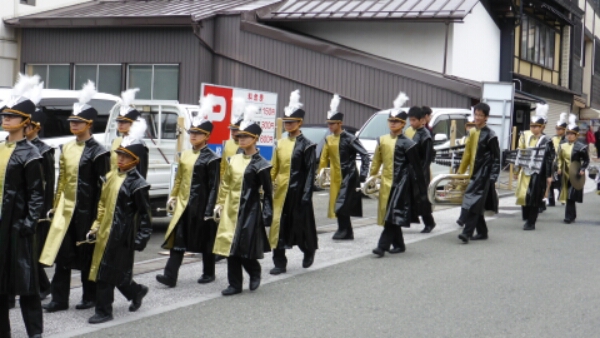
We visited the local markets which seem popular in most towns. We wandered the alleyways with traditional Japanese tea rooms, houses and shops and restaurants. There are many restaurants in the town to choose to go to for a meal. The town seems to close down early before the restaurants open for the evening around 6.00pm. Our final couple of hours on our last day were spent in the Shiroyama Park just opposite our ryokan.
The autumn trees were slowly dropping their leaves and every now and again we would come across an ancient plaque, ruins of the Takayama Castle and resting places to just sit and relax. A nice way to spend our last few hours.
